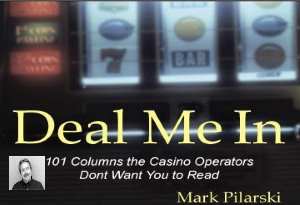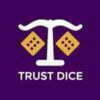Playing recently with a friend, I noticed he was getting agitated with the dealer. Instead of leaving, he challenged this rude dealer, figuring he would get his just revenge by beating him out of his money. Anyhow, you can probably figure out what happened. The player ended up leaving his money behind. What advice would you give my busted friend? William B.
Sometimes the best response to stormy weather is to unleash your own tempest. But against a well-financed, cantankerous dealer, trust me, you will not restore equilibrium.
Your companion should have done what I would advise any player to do if uncomfortable with a surly dealer: unkeister that stool, as they say in the top European casinos, and hustle out of there. There is no value in playing heads-up with a non-simpatico dealer. Don’t get macho and challenge an ill-mannered dealer. His bankroll is not only the $10,000 laid out in front of him, but the myriad of millions in the vault.
Oh, yeah, William, another thing. Your friend’s got it wrong in believing the dealer’s money is on the table or that he has a stake or a preference-aside from his dyspeptic animus-in the outcome of your comrade’s play. Whether with a smile or a sneer, the dealer did what he’s paid to do: relieve visitors of their cash burdens.
Is it polite to ask a dealer if he is running hot or cold? June D.
No problem, June, just ask him. Most will tell you whether they are dumping the tray in the player’s favor; if not, you are staring at the dealer from hell. But a cautionary side note. In all the years that I pitched cards, I have been asked innumerable times if I was running hot or cold. I can count on one hand the players who walked and avoided the wrath of Pilarski when I told them I was sizzling. Most players seem to have been vaccinated against common sense and think lady luck is super-glued to their left shoulders, no matter what admonition you give them.
My favorite slot machines are the old mechanical types you find hidden in the corner in the few remaining casinos that carry them. The problem is, the jackpots are very small compared to the newer machines. Why don’t the older machines offer decent sized jackpots? Carol H.
Those patriarchal machines of the past you are describing each had three reels, with 20 symbols on each reel. Mathematically that works out to 20 X 20 X 20 possible combinations, equaling a hot 8000 to 1 chance of your hitting a jackpot. Granted, the hardware may have looked something like today’s three reel/20 symbol slot machines, but the similarity stops there, and you would be dead wrong in assuming that there is an 8,000 to 1 chance of hitting them.
Today’s hybrids out of yesterday’s sweet past all have a computer chip operating inside them, and those 20 symbols are now just computerized stops, with as many as 256 imaginary symbols per reel. The chance of hitting the top-line jackpot is 256 X 256 X 256, equating 16,777,216 to one. With 4 reels and 256 stops, try four billion and change.
The main problem with an old mechanical machine is that you are confined to the physical size of the reel, which generally has 20 symbols on it. At an 8,000 to 1 chance of hitting a Godsend, you didn’t expect the casino prize to be a Lexus, nor a $250,000 jackpot. But with the computerized stops, the casino can safely offer caviar dreams.
Gambling thought of the week: “Games in which all may win, such games remain as yet in this world uninvented.” Herman Melville, The Confidence Man (1857)




















